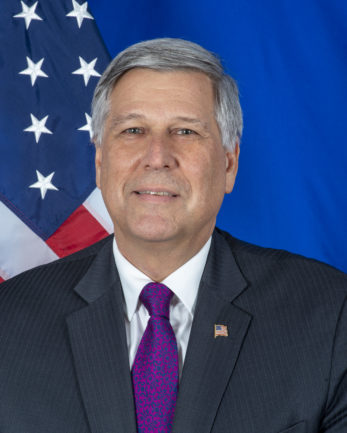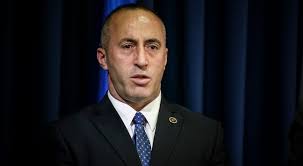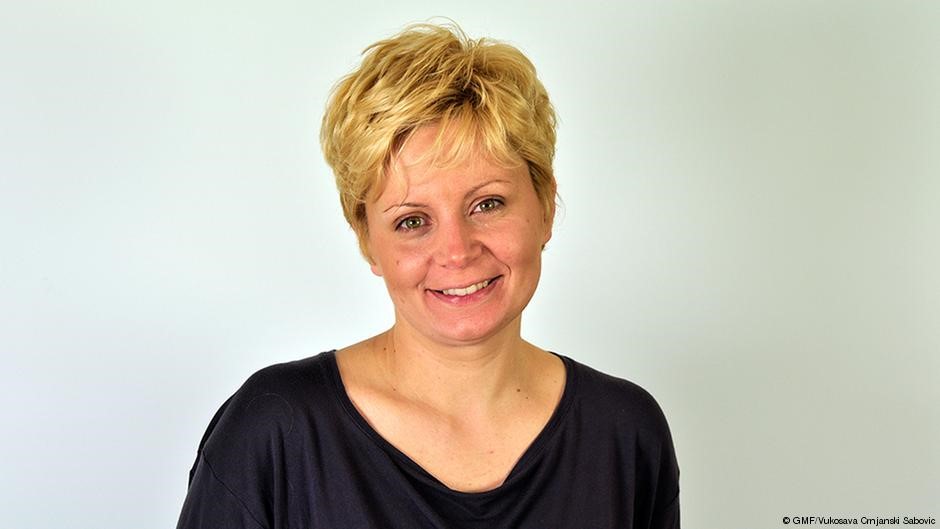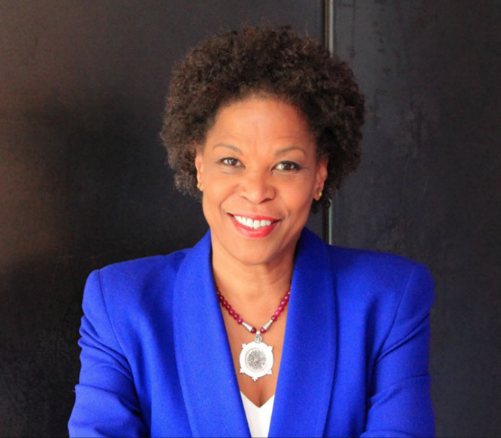Day 4
Friday, March 29, 2019
Location: Kino Armata
09:00 - 09:30 Registration of participants
09:30 - 09:35 Opening Remarks: Christina Davis, Director of Democracy and Governance
Office, United States Agency for International Development (USAID)
09:35 - 11:30 Panel 1: Fostering Shared Ownership of Policy Choices: Challenges in Ensuring
Engagement of Citizens Groups in Policy-Making Processes
Goal: Meaningful participation of citizens in policy decision-making processes is critical to
ensure a well-functioning democracy. Building shared ownership of policy choices is
particularly important at the local level. Municipalities have to provide services that meet the
needs of all citizens, including those most vulnerable. To do so, they must invest sufficient
political capital and resources in developing and strengthening mechanisms that keep citizens
informed, consulted and actively engaged in the formulation and implementation of local level
policies. In turn, the awareness among citizens and their capability to meaningfully
participate in the development of municipal policies, ordinances, and budgets must be
increased. This panel seeks to explore ways in which institutions should reach out to citizens
and how the latter can effectively make use of existing mechanisms designed to facilitate their
participation in policy development processes and in bridging the gap between the
government and the governed.
09:35 - 10:10 Panelist Remarks
● Duda Balje, Member of the Assembly of Kosovo/Chair of the Committee on Human
Rights, Gender Equality, Missing Persons, and Petitions
● Vesna Mikić, Deputy Minister of Justice
● Qëndron Kastrati, Mayor of the Municipality of Kamenica
● Jovana Radosavljević, Executive Director at New Social Initiative
● Ganimete Aliu, Gender Equality Officer in the Municipality of Obiliq
10:10 - 11:30 Discussion with the Audience
Moderator: Sanja Sovrlic, Journalist at portal A Black and White World/Week of Women
Alumna (Cohort of 2014)
11:30 - 12:30 A Conversation with Sonja Stamenkova, Mayor of the Municipality of Makedonska
Kamenica
Goal: Local government officials must be held accountable by the community not only for their
services and actions, but also for the way they behave in carrying out their responsibilities.
The trust vested in them by citizens is expected to be returned in actions that represent public
interest, not their personal interests or those of their party. Essentially, they have been trusted
to manage citizens’ taxes, and therefore citizens should not only be informed of the decisions
made in their name, but must be consulted and engaged in processes that lead to those
decisions. This is critical, especially in local-level governance which in essence is designed to
bring the institutions as close as possible to citizens. Thus, only through transparency and
accountability can public institutions assure citizens that policies and actions, funded by their
taxes, will serve the public interest. During this session, participants will have the opportunity
to discuss approaches aimed at engaging citizens in policy making and promoting a culture of
accountability among public officials that enables the latter to introduce and uphold high
standards of ethics and integrity in public service.
11:30 - 11:35 Opening by Arbesa Neziri, Week of Women alumna (Cohort of 2018)
Guests’ Remarks:
11:35 - 11:40 Sonja Stamenkova, Mayor of the Municipality of Makedonska Kamenica, The
Republic of North Macedonia
11:40 - 12:30 Open Discussion with the Audience
12:30 – 13:30 Lunch
13:30 – 15:30 Panel 2: Improving Accountability of Local Government through Efficient and
Transparent Public Procurement Processes
Goal: Democratic countries have endorsed the decentralization of power and the
strengthening of local governments as a leading approach to be effective and responsive when
addressing citizens’ most immediate needs. Supporters of this strategy have argued that
citizen proximity to government officials will have a positive impact in increasing efficiency,
transparency, and accountability of public institutions. The experience in Kosovo, as in many
developing countries, however, reveals severe shortcomings in setting policy priorities and
budget allocations. Ineffective processes and procedures in public procurement, marked by a
lack of transparency and corruption, has prevailed, among other challenges in the local
government. During this session, participants will be able to discuss with panelists the
breakthrough changes in public procurement, municipal efforts in improving transparency
and accountability of local government, revisions to the legal framework on public
procurement, tech solutions introduced to ensure greater transparency of the procurement
process, and the role of civil society organizations and media in monitoring and reporting
about overall management of public finances at the local level.
13:30 – 14:00 Panel Remarks
● Ardian Gjini, Mayor of the Municipality of Gjakova
● Xhafer Tahiri, Mayor of the Municipality of Vushtrri
● Zize Blakaj, Procurement Manager in the Municipality of Istog/Week of Women Alumna
(Cohort of 2012)
● Vlora Ferizi, Procurement Advisor at USAID, Transparent, Effective and Accountable
Municipalities activity in Kosovo
● Njomza Arifi, the Programme Manager at the Group for Legal and Political Studies
14:00 – 15:30 Open Discussion with the Audience
Moderator: Nora Siqeca, Communications expert at USAID, Transparent, Effective and
Accountable Municipalities activity in Kosovo
15:30 – 16:30 A Conversation with Erica Van Lente, Mayor of the Municipality of Dalfsen, The
Kingdom of the Netherlands
Goal: Local government officials must be held accountable by the community not only for their
services and actions, but also for the way they behave in carrying out their responsibilities.
The trust vested in them by citizens is expected to be returned in actions that represent public
interest, not their personal interests or those of their party. Essentially, they have been trusted
to manage citizens’ taxes, and therefore citizens should not only be informed of the decisions
made in their name, but must be consulted and engaged in processes that lead to those
decisions. This is critical, especially in local-level governance which in essence is designed to
bring the institutions as close as possible to citizens. Thus, only through transparency and
accountability can public institutions assure citizens that policies and actions, funded by their
taxes, will serve the public interest. During this session, participants will have the opportunity
to discuss approaches aimed at engaging citizens in policy making and promoting a culture of
accountability among public officials that enables the latter to introduce and uphold high
standards of ethics and integrity in public service.
15:30 - 15:35 Opening by Amra Zejneli-Loxha, Journalist at RTK 2/Radio Free Europe/Radio
Liberty (RFE/RL)
15:35 - 15:45 Keynote Address by Erica Van Lente, Mayor of the Municipality of Dalfsen, the
Kingdom of the Netherlands
15:45 - 16:30 Open Discussion with the Audience
16:30 – 16:45 Coffee break
16:45 – 18:30 Panel 3: Safeguarding the Media's Role in Promoting Government Transparency
and Accountability
Goal: In a democratic society, media plays a crucial role in promoting good governance. By
monitoring what the government is doing and exposing its wrongdoings, media ensures public
scrutiny and amplifies citizen demands for greater government accountability. Media also
serves as a civic forum for political and policy debates, enabling informed electoral and policy
choices. Information is vital for citizens to make decisions regarding their involvement in
public affairs, and media has a critical role in mediating between citizens and the state by
providing accurate and timely information on major issues of the day and positions of
relevant stakeholders. This session will examine the extent to which media reflects the cultural
and social diversity of the society and its ability to serve as an agenda-setter by facilitating
communication of citizen priorities and demands to policy makers. Participants will also
discuss ways in which new digital media is redesigning the political information exchange and
affecting policy-making processes.
16:45 – 17:15 Panelist Remarks
● Fatmire Mulhaxha-Kollcaku, Member of the Assembly of Kosovo
● Agim Aliu, Mayor of the Municipality of Ferizaj
● Valdete Bajrami, Chair of Women's Wing of NISMA Socialdemokrate
● Arben Ahmeti, Author and Program Director of “Complaints Office”- RTV Dukagjini
● Erëza Vela, Expert on Public Relations and Communication
17:15 - 18:30 Open Discussion with the Audience
Moderator: Mimoza Gavrani, Program Manager at Caritas Switzerland in Kosovo/Week of
Women Alumna (Cohort of 2013)










